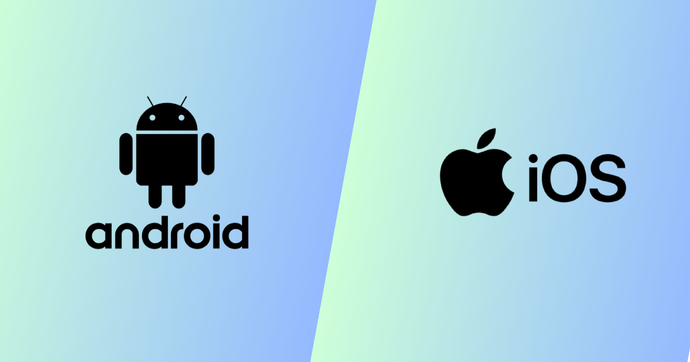
iOS vs. Android – Which One is Better?
The debate between iOS and Android has been ongoing for years, with loyal users on both sides. As the two biggest smartphone operating systems, Apple’s iOS and Google’s Android offer different experiences, each with its own strengths and weaknesses.
So, which one is better? Let’s compare them based on key factors.
1. User Experience: Simple vs. Customizable
- iOS: Known for its smooth and easy-to-use interface. Apple controls both hardware and software, ensuring a seamless experience. Ideal for users who prefer simplicity.
- Android: Offers more customization options, from widgets to third-party apps. However, cheaper Android phones may not run as smoothly as iPhones.
2. Apps: Quality vs. Quantity
- iOS: The App Store has high-quality apps, strict review policies, and better optimization. Many developers release apps on iOS first.
- Android: The Google Play Store has more apps, including many free ones, but quality varies. Android also allows app downloads from other sources.
3. Hardware: Premium vs. Variety
- iOS: Apple makes both iPhones and iOS, ensuring top-notch hardware quality, strong performance, and long software support. However, iPhones are expensive.
- Android: Available in a wide range of phones, from budget-friendly models to premium flagships. Brands like Samsung and Google introduce unique features like foldable screens.
4. Privacy & Security: Closed vs. Open
- iOS: Apple prioritizes privacy with features like App Tracking Transparency. Its closed system makes it harder for malware to infect devices.
- Android: Google has improved security, but Android’s open nature makes it more vulnerable. However, users have more control over app permissions.
5. Ecosystem: Apple vs. Google
- iOS: Works best with other Apple products like Macs, iPads, and AirPods. Features like AirDrop and iCloud sync make switching between devices seamless.
- Android: Integrates well with Google services (Gmail, Google Drive) and supports a variety of third-party devices.
6. Software Updates: Fast vs. Delayed
- iOS: Apple provides timely updates for all supported devices, usually for five years or more.
- Android: Updates depend on the phone manufacturer. Google’s Pixel phones get quick updates, but other brands may delay them.
Which One Should You Choose?
- Choose iOS if you want a smooth, secure, and reliable experience with premium hardware and long-term software support.
- Choose Android if you prefer customization, a variety of phone options, and an open system.